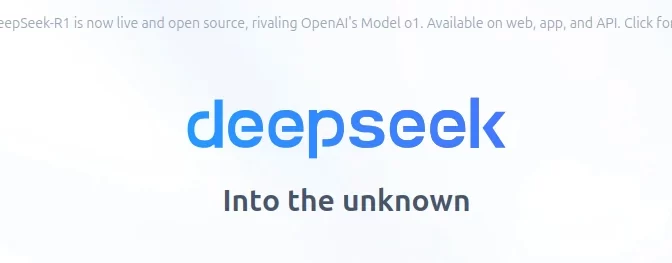
DeepSeek’s Disruptive AI Model Sparks Market Sell-Off and Raises Questions About AI Investment
The newly launched DeepSeek assistant is making waves in the AI industry, offering a free, cost-efficient alternative to models like ChatGPT. By utilizing significantly less data and costing only a fraction of what its competitors require, DeepSeek could mark a turning point in the financial investment necessary for artificial intelligence development.
What makes its success even more remarkable is that the U.S. government has imposed export controls on advanced Nvidia chips, restricting their sale to China. Despite these limitations, DeepSeek researchers revealed in a paper last month that they trained the latest DeepSeek-V3 model using Nvidia’s lower-cost H800 chips rather than the more advanced alternatives.
As MIT Technology Review observed:
“Rather than weakening China’s AI capabilities, the sanctions appear to be driving startups like DeepSeek to innovate in ways that prioritize efficiency, resource-pooling, and collaboration.”
DeepSeek’s Cost Advantage Compared to OpenAI
Training DeepSeek came at a total cost of $6 million, a stark contrast to OpenAI’s GPT-4, which OpenAI CEO Sam Altman has acknowledged cost over $100 million to develop. This massive cost disparity has led to increased scrutiny over the sustainability of Western AI investments, particularly as DeepSeek’s rapid progress forces a reevaluation of high-cost AI development strategies.
Market Impact: AI Stocks Plummet
The launch of DeepSeek has triggered a significant market reaction, prompting a sell-off in AI-related tech stocks. In pre-market trading:
- Nvidia’s shares dropped 10%
- Oracle’s stock declined 8%
- Palantir, an AI data analytics firm, saw a 7% drop
- Microsoft and Meta also experienced losses in their share prices
The situation has raised serious questions about the long-term feasibility of current AI spending trends, particularly for companies investing heavily in infrastructure. For instance, Microsoft has announced plans to spend $80 billion on AI infrastructure in 2025, highlighting the stark difference in financial strategy compared to DeepSeek.
Industry Disruption and the ‘Magnificent 7’ Tech Giants
AI strategist Mark Minevich emphasized the profound impact DeepSeek is having on U.S. and European tech markets:
“DeepSeek’s emergence has caused US and European tech stocks to tumble, with fears that the AI startup’s low-cost, high-performance model could destabilize established players like OpenAI, Google, and Meta. As of now, it’s estimated that DeepSeek has erased several trillion in market cap from US tech companies.”
Minevich further explained that DeepSeek’s approach isn’t just about innovation—it’s about market disruption:
“By giving its AI model away for free while outperforming its Western counterparts, DeepSeek has created a pricing war that US companies may struggle to survive. The so-called ‘Magnificent 7’ (Apple, Microsoft, Alphabet, Amazon, Meta Platforms, Nvidia, and Tesla) may not be able to justify their valuations at current levels.”
What This Means for Consumers
For everyday users, this development could be a major win. If DeepSeek forces competitors to lower prices or offer more accessible AI tools, consumers might benefit from cheaper, high-quality AI models in the future. The ongoing shake-up in the industry may ultimately drive greater efficiency and affordability in AI technology, reshaping the market for years to come.
Author: Ryan Bridglal, 01/31/2025
